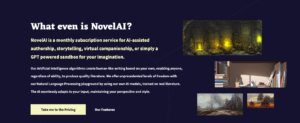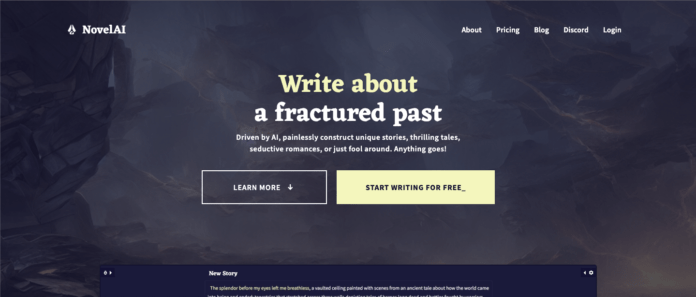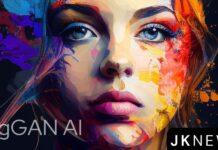Artificial Intelligence (AI) has permeated numerous domains, from healthcare to finance, and now it is making its mark on the world of literature. Novel AI, a groundbreaking field at the intersection of artificial intelligence and creative writing, is transforming how stories are conceptualized, written, and consumed.
In this article, we will delve into the fascinating world of novel AI, exploring its evolution, applications, benefits, challenges, and the future it holds for the literary landscape.
Introduction to Novel AI
Novel AI refers to the use of AI technologies, particularly natural language processing and deep learning, to augment and automate various aspects of novel writing and storytelling. It aims to enhance the creative process for authors, provide tools for generating engaging narratives, and facilitate reader personalization. By leveraging AI, novelists can unlock new possibilities and push the boundaries of their imagination.
Understanding AI in the Context of Novels
Before diving into the realm of novel AI, it is essential to comprehend the role of AI in the context of novels. AI systems are designed to analyze large amounts of text data, learn patterns and structures, and generate human-like outputs. These systems rely on advanced algorithms and computational power to process vast datasets and extract meaningful insights. In the case of novels, AI algorithms can be trained on vast libraries of existing literary works to learn the nuances of storytelling and language usage.
Also Read :OpenAI API Is Not Available In Your Country: 3 Ways to Fix The Error
The Evolution of Novel AI

Early Attempts and Limited Successes
Early attempts at utilizing AI for novel writing were met with limited success. The complexity of human language and the intricacies of storytelling posed significant challenges for AI systems. However, these initial efforts laid the groundwork for further advancements in the field.
Advancements in Natural Language Processing
Advancements in natural language processing (NLP) have played a pivotal role in propelling novel AI forward. NLP algorithms now possess the ability to understand, interpret, and generate human language with remarkable accuracy. Techniques such as sentiment analysis, named entity recognition, and language modelling have opened up new avenues for AI-driven novel writing.
Deep Learning and Neural Networks
Deep learning, a subset of machine learning, has revolutionized the field of AI. Neural networks, the backbone of deep learning algorithms, can capture intricate patterns and generate coherent and contextually relevant text. Recurrent neural networks (RNNs) and transformers have become instrumental in training AI models to produce high-quality prose and dialogue.
Also, Read : Why ChatGPT Not Saving Conversations? 8 Easy Methods
Applications of Novel AI
The applications of novel AI are diverse and have the potential to transform various aspects of the writing and reading experience.
Automated Novel Generation
AI-powered systems can now generate entire novels autonomously. By leveraging vast datasets and sophisticated language models, these systems can produce coherent and engaging narratives. While AI-generated novels may lack the human touch and creativity, they serve as valuable sources of inspiration and can even act as starting points for human authors.
Character and Plot Development Assistance
Novel AI tools can assist authors in developing compelling characters and intricate plotlines. By analyzing existing literature and identifying successful narrative patterns, AI algorithms can suggest character arcs, plot twists, and thematic elements. This assistance allows authors to explore new dimensions in their storytelling and refine their creative vision.
Editing and Proofreading Support
AI algorithms excel at identifying grammatical errors, inconsistencies, and structural flaws in written text. Novel AI tools can serve as invaluable editing and proofreading assistants, helping authors polish their manuscripts and ensure a high level of readability. These tools can save time and effort, allowing authors to focus on the creative aspects of their work.
Reader Engagement and Personalization
AI technologies enable personalized reading experiences by analyzing reader preferences and generating tailored recommendations. By tracking reader interactions, sentiment analysis, and collaborative filtering, AI can suggest novels, genres, or authors that align with an individual's tastes. This level of personalization enhances reader engagement and cultivates a loyal fan base.
Benefits and Challenges of Novel AI
As with any emerging technology, novel AI comes with its own set of benefits and challenges.
Enhanced Creativity and Efficiency
Novel AI tools offer a unique blend of inspiration, assistance, and automation. They can inspire authors with fresh ideas, speed up the writing process, and alleviate writer's block. By automating certain tasks, authors can focus on unleashing their creativity and refining their storytelling skills.
Ethical Considerations and Human Involvement
The rise of AI in novel writing raises important ethical considerations. While AI-generated novels can be impressive, there is a risk of devaluing human creativity and craftsmanship. The involvement of human authors in the creative process ensures that novels retain an authentic voice and capture the depth of human experiences.
Balancing Automation with Human Touch
While AI tools can streamline the writing process, it is crucial to strike a balance between automation and the human touch. Overreliance on AI-generated content may result in formulaic narratives and the loss of uniqueness. Collaborative efforts between AI and human authors can leverage the strengths of both, resulting in truly exceptional literary works.
The Future of Novel AI

The future of novel AI is brimming with possibilities and holds tremendous potential for the literary world.
Continued Technological Advancements
As AI technologies continue to evolve, novel AI will become increasingly sophisticated. We can expect more refined language models, better narrative generation capabilities, and improved collaboration between AI and human authors. These advancements will push the boundaries of creativity and transform the way novels are written and enjoyed.
Collaboration between AI and Human Authors
The future of novel AI lies in collaboration rather than competition. AI tools will serve as creative companions, assisting authors in their endeavors. Human authors will continue to bring their unique perspectives, emotions, and experiences to the storytelling process, while AI will provide support, efficiency, and novel ideas.
Impact on the Literary Landscape
Novel AI is poised to reshape the literary landscape in profound ways. The accessibility of AI-generated content may democratize storytelling, allowing aspiring authors to explore their creative potential. Additionally, personalized reading experiences and tailored recommendations will enhance reader engagement, fostering a deeper connection between readers and authors.
Conclusion
Novel AI represents a remarkable convergence of artificial intelligence and literature. It offers unprecedented opportunities for authors to amplify their creativity, streamline their writing process, and engage readers on a personal level. As the field continues to advance, it is crucial to strike a balance between automation and human involvement, ensuring that novels remain authentic and evocative. The future of novel AI holds great promise, heralding a new era of storytelling and literary exploration.
FAQs
- Can AI replace human authors completely? While AI has made significant advancements in novel writing, human authors bring unique creativity and depth of experience that AI cannot replicate. AI should be seen as a tool to augment and assist human authors rather than replace them entirely.
- How can novelists make the best use of AI tools? Novelists can leverage AI tools by using them as sources of inspiration, editing and proofreading assistants, and collaborators in the creative process. By embracing AI, authors can enhance their efficiency and explore new dimensions in storytelling.
- Is there a risk of AI-generated novels becoming formulaic? There is a potential risk of AI-generated novels lacking originality and becoming formulaic if there is overreliance on AI algorithms. However, human authors can add their unique perspectives, emotions, and storytelling expertise to ensure that novels remain fresh and captivating.
- Can AI help in the publishing and marketing of novels? Yes, AI can play a significant role in the publishing and marketing of novels. It can assist in analyzing market trends, identifying target audiences, and generating personalized recommendations for readers. AI can also aid in automating certain aspects of the publishing process, such as metadata generation and book cover design.
- What are the potential ethical concerns surrounding novel AI? Ethical concerns surrounding novel AI include the potential devaluation of human creativity, the risk of plagiarism or copyright infringement, and the impact on the livelihoods of authors. It is essential to strike a balance between AI automation and human craftsmanship, ensuring that the literary world remains rich with authentic and original works.






